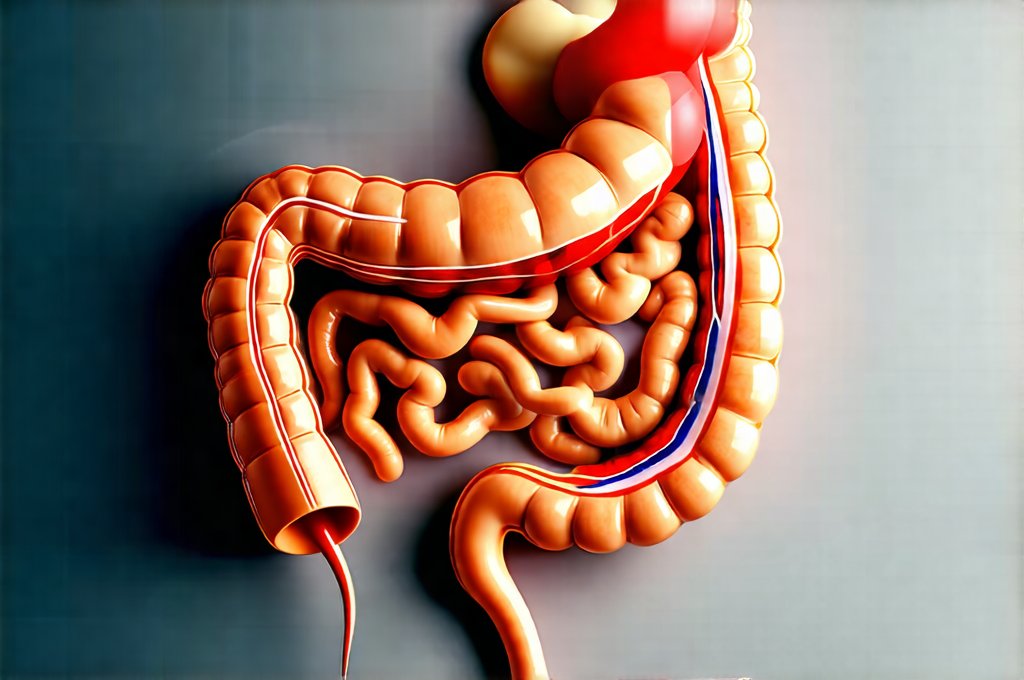Experiencing digestive distress is unpleasant at any time, but when it consistently strikes during sleep, it can be particularly disruptive and concerning. Nighttime gut issues – ranging from bloating and gas to cramping, diarrhea, or even nausea – aren’t simply a matter of inconvenience; they severely impact the quality of rest, leading to fatigue, anxiety, and a general decline in well-being. Many individuals initially attribute these symptoms to dietary choices or stress, but persistent nighttime problems often signal underlying issues that require investigation. Understanding why these symptoms appear specifically at night is crucial for proper diagnosis and management, as it differs significantly from daytime digestive complaints.
The body’s physiological processes shift dramatically during sleep. Digestion slows down, gut motility changes, hormone levels fluctuate, and the immune system behaves differently. These nocturnal alterations can exacerbate existing sensitivities or trigger new ones. For example, the migrating motor complex (MMC), responsible for “housekeeping” in the small intestine, is most active during fasting periods like sleep. If there’s an overgrowth of bacteria or food isn’t fully digested, this activity can become symptomatic. Furthermore, acid reflux tends to increase when lying down, and certain inflammatory processes are more prominent at night. Therefore, pinpointing the cause necessitates a thoughtful approach beyond standard daytime assessments.
Identifying the Culprit: A Diagnostic Roadmap
Diagnosing nighttime gut issues requires a strategic approach that considers both the potential causes and the timing of symptoms. Standard digestive testing often isn’t enough because it doesn’t capture what happens when your body is at rest. The initial step usually involves detailed symptom tracking – recording when problems occur, what you ate beforehand, and any associated symptoms (e.g., heartburn, bloating, urgency). This creates a valuable baseline for both the patient and healthcare provider. From there, testing can be tiered, starting with less invasive options and progressing to more specialized investigations as needed. It’s important to remember that testing isn’t always necessary; sometimes lifestyle adjustments based on symptom tracking are enough. However, persistent or severe symptoms warrant further investigation to rule out serious underlying conditions.
A comprehensive approach will often involve a combination of tests, carefully selected based on the individual’s symptoms and medical history. Testing may include stool analysis for parasites or bacterial imbalances, breath tests to assess carbohydrate malabsorption (like lactose or fructose intolerance) or small intestinal bacterial overgrowth (SIBO), and blood tests to check for inflammation markers, nutrient deficiencies, or celiac disease antibodies. The goal is not simply to identify a problem but to understand the mechanisms driving it. For example, if SIBO is suspected, breath testing can confirm its presence, while stool analysis may reveal underlying dysbiosis contributing to the overgrowth. It might be helpful to consider diagnostics that reveal why gut symptoms happen after stress as well.
Stool Testing: Unveiling the Gut Microbiome
Stool testing has evolved significantly beyond basic parasite checks. Modern comprehensive stool analysis (CSA) provides a detailed snapshot of the gut microbiome – the trillions of bacteria, viruses, and fungi residing in your digestive tract. These tests can identify imbalances in bacterial populations (dysbiosis), detect pathogenic bacteria or parasites, assess levels of beneficial bacteria, measure markers of inflammation (like calprotectin), and evaluate digestion and absorption capabilities.
- CSA can help pinpoint issues like low secretory IgA (an antibody crucial for gut immunity) or elevated levels of harmful bacteria associated with bloating and gas.
- The results provide valuable insights into the overall health of your gut ecosystem and guide targeted interventions such as probiotic supplementation, dietary changes, or prebiotic fiber intake.
- It’s important to note that interpreting CSA results requires expertise; a healthcare professional can help translate the data and create a personalized treatment plan. In some cases, it might be necessary to investigate which GI tests are useful for people with skin issues too.
Breath Testing: Detecting Malabsorption & Overgrowth
Breath tests are non-invasive methods used to diagnose conditions related to carbohydrate malabsorption and small intestinal bacterial overgrowth (SIBO). The principle is simple: when undigested carbohydrates reach the colon, they’re fermented by bacteria, producing gases like hydrogen, methane, and hydrogen sulfide. These gases are absorbed into the bloodstream and exhaled in your breath, allowing for their detection.
- Patients ingest a specific amount of sugar (e.g., lactose, fructose, or glucose).
- Breath samples are collected at regular intervals over several hours.
- Elevated levels of these gases indicate malabsorption or SIBO.
SIBO is particularly relevant to nighttime symptoms because the MMC operates most efficiently during fasting, potentially leading to increased bacterial fermentation and gas production overnight. Different breath test protocols exist; choosing the appropriate one depends on the suspected underlying issue. If you suspect parasitic infection, consider which digestive tests work best for detecting parasites.
Blood Tests: Assessing Inflammation & Nutrient Status
While stool and breath tests provide information about gut function and microbiome composition, blood tests offer insights into systemic health and potential contributing factors. Markers of inflammation, such as C-reactive protein (CRP) or erythrocyte sedimentation rate (ESR), can indicate underlying inflammatory processes that may be exacerbating gut symptoms. Nutrient deficiencies are also common in individuals with digestive issues due to impaired absorption.
- Blood tests can assess for vitamin D deficiency, iron deficiency anemia, and B vitamins, which play crucial roles in gut health and immune function.
- Celiac disease antibodies (IgA anti-tissue transglutaminase – tTG IgA) should be checked if gluten sensitivity is suspected, even without classic symptoms of malabsorption.
- Food allergy testing (IgE or IgG antibody tests) can sometimes be helpful, but interpretations must be cautious and in conjunction with a healthcare professional as they are often unreliable indicators of true food intolerance. It’s also important to understand subtle test results that hint at gut dysfunction, alongside more obvious findings. A balanced diet including morning smoothies can also contribute to improved gut health. Finally, it’s important to remember how doctors investigate gut symptoms that don’t match tests.
It’s essential to work closely with a healthcare provider when navigating these tests. Self-diagnosis can lead to misinterpretations and inappropriate interventions. A personalized approach, based on thorough symptom assessment and accurate diagnostic testing, is key to effectively managing nighttime gut issues and restoring digestive comfort. Remember that the journey towards gut health often requires patience and a willingness to explore different options under professional guidance.


















